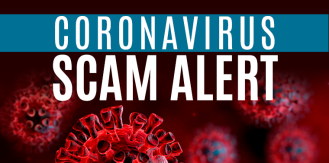Here are some tips to avoid fake claims:
-
Do not respond to calls or texts from unknown numbers, or any others that appear suspicious. – FCC
-
Ignore offers for vaccinations and miracle treatments or cures. Scammers are selling products to treat or prevent COVID-19 without proof that they work. – FTC
-
Be wary of ads for test kits. Many test kits being advertised have not been approved by the FDA, and aren’t necessarily accurate. Almost all authorized home tests don’t provide rapid results and require you to send a test sample to a lab for analysis. – FTC
-
Be mindful of how you dispose of COVID-19 materials such as syringes, vials, vial container boxes, vaccination record cards, and shipment or tracking records. Improper disposal of these items could be used by bad actors to commit fraud. – U.S. Department of HHS
-
Offers to purchase COVID-19 vaccination cards are scams. Valid proof of COVID-19 vaccination can only be provided to individuals by legitimate providers administering vaccines. – U.S. Department of HHS
-
Photos of COVID-19 vaccination cards should not be shared on social media. Posting content that includes your date of birth, health care details or other personally identifiable information can be used to steal your identity. – U.S. Department of HHS
-
Never share your personal or financial information via email, text messages, or over the phone. – FCC
-
Be cautious if you're being pressured to share any information or make a payment immediately. – FCC
-
Scammers often spoof phone numbers to trick you into answering or responding. Remember that government agencies will never call you to ask for personal information or money. – FCC
-
Do not click any links in a text message. If a friend sends you a text with a suspicious link that seems out of character, call them to make sure they weren't hacked. – FCC
-
Always check on a charity (for example, by calling or looking at its actual website) before donating. – FCC

